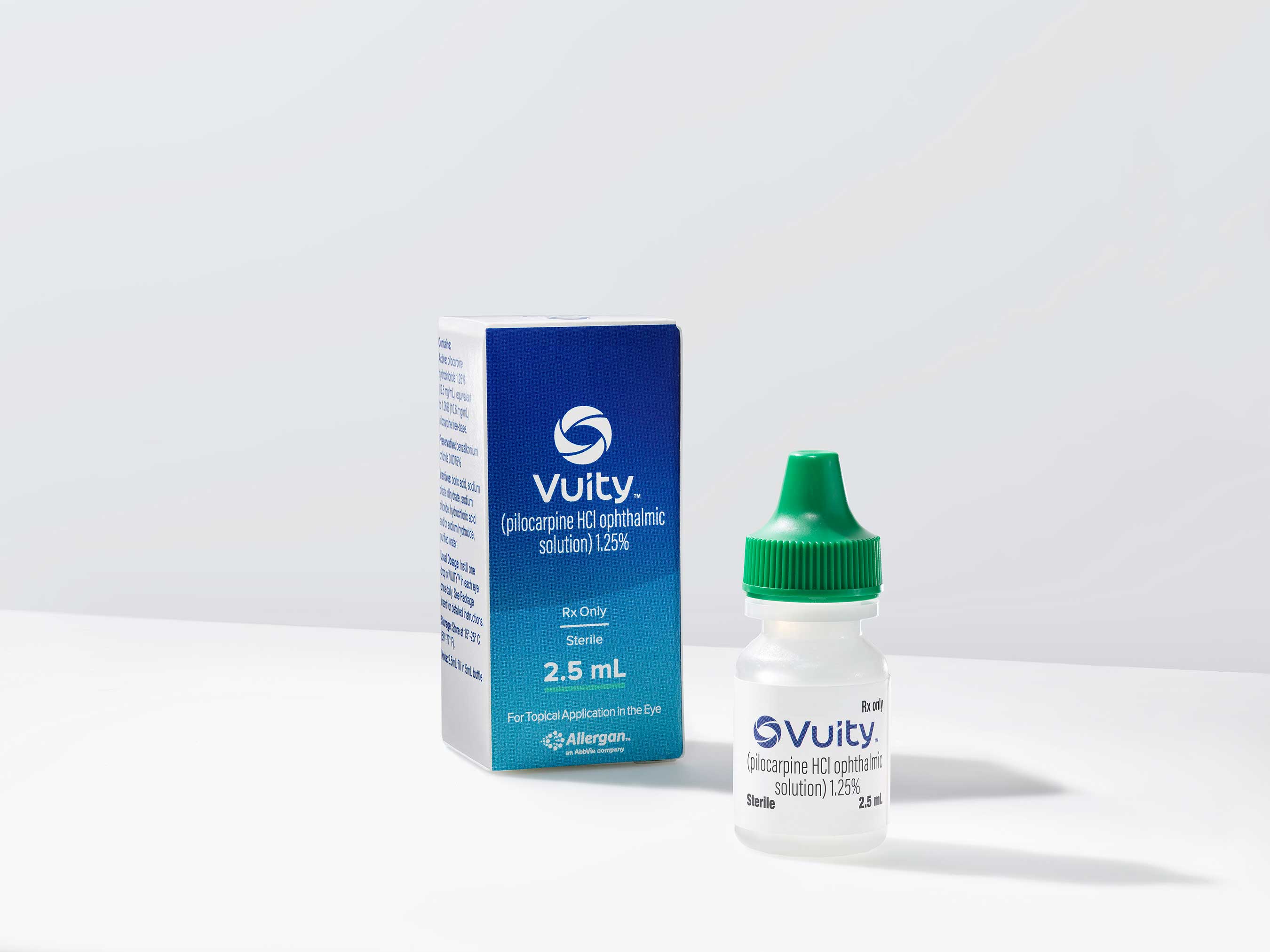Recently Approved Presbyopia Eye Drop Vuity Now Available in Pharmacies

Allergan announced that Vuity (pilocarpine HCl ophthalmic solution) 1.25%, the first and only eye drop approved by the FDA to treat presbyopia, is now available by prescription in pharmacies nationwide.
"We are pleased to be able to bring this first-of-its-kind treatment to market sooner than expected for the millions of Americans with presbyopia who may benefit from it," Jag Dosanjh, senior vice president medical therapeutics, Allergan, an AbbVie company, said in a company news release. "This significant innovation in age-related eye health reflects our commitment to advance vision care and expands our leading portfolio of treatments for eye care providers and their patients."
Vuity is an optimized formulation of pilocarpine, an established eye care therapeutic, specifically designed to treat age-related blurry near vision. It is delivered with proprietary pHast technology, which allows Vuity to rapidly adjust to the physiologic pH of the tear film. This was studied in simulated tear film, and the clinical significance is unknown. Vuity uses the eye's own ability to reduce pupil size, improving near and intermediate vision while maintaining distance vision.
Watch EyewireTV's coverage of the Vuity approval here.
For product information, visit www.VUITY.com.

About the VUITY Clinical Development Program
The FDA approval of VUITY in October 2021 was based on data from two pivotal phase 3 clinical studies, GEMINI 1 and GEMINI 2, which evaluated the efficacy, safety and tolerability of Vuity for the treatment of presbyopia.
- A total of 750 participants aged 40 to 55 years old with presbyopia were randomized in the two studies in a one-to-one ratio to either Vuity or placebo.
- Participants were instructed to administer one drop of Vuity or placebo once daily in each eye.
- Both studies met their primary endpoints with a statistically significant proportion of participants treated with Vuity gaining 3 lines (the ability to read three additional lines on a reading chart) or more in mesopic (in low light), high contrast, binocular Distance Corrected Near Visual Acuity (DCNVA), without losing more than 1 line (5 letters) of Corrected Distance Visual Acuity (CDVA) at day 30, hour 3, versus placebo.
- There were no serious adverse events observed in any participants treated with Vuity in either clinical study. The most common adverse events occurring at a frequency of >5% in participants treated with Vuity were headache and eye redness.
